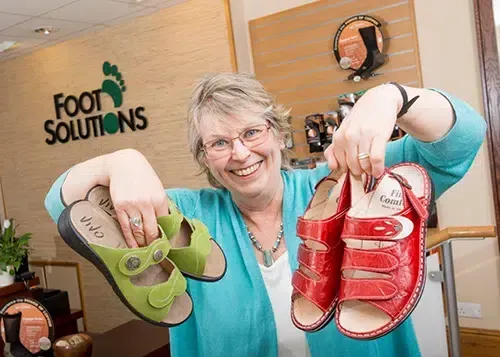
There are more than a hundred marathons to choose from in the UK alone, open to professionals and amateurs alike. People of all ages are competing, even into their nineties! Unlike most sporting challenges, there is no special skill or gift required for running, just a lot of determination and preparation.
If you don’t prepare properly, the chances of finishing are low, and the probability of
damaging yourself is high. For successful, injury-free preparation and participation, the choice of
running shoes is crucial. The guidelines below will help you select the right running footwear:
1. Choose Your Running Shoes Well in Advance
Your
feet and your shoes need time to get to know each other, and the shoes must be well-worn before you compete
2. Try on Both Shoes
No pair of feet is entirely identical. Don’t be shy; try on lots, and try on the left and the right
3. Select the Right Size
Running shoes are often smaller than normal shoes, so don’t just go by the size on the sole-go for the ones that feel the most comfortable. Choose half a size larger than you normally wear.
Under hard exercise like marathon running, your feet will
swell as they heat up
4. Seek Professional Advice
Ideally, go to a retailer who specialises in
orthotics, whose staff are trained to assess the proper needs of your feet. More expensive shoes are not a guarantee of greater comfort. It’s all about fitting the particular needs of your feet.
This is not just a matter of size and width; a high
arch, for example, may need more cushioning. It’s also how you use your
feet. Have your gait analysed to determine what additional support you may need.
5. Break in Your Shoes Gradually
Once you’ve chosen your
running shoes, wear them around the house and go for a walk in them. Don’t run too far too soon. Set out a realistic timetable in which you gradually increase time and distance, but build in rest and recuperation
6. Vary Your Training Routine
Vary your times and distances over each week. Warm up before each run. Do simple stretches after. Get a routine going and make sure you build enough time for training into your day.
7. Replace Worn-Out Shoes
Once you get into serious running, don’t expect your shoes to last forever. Change pairs every five to six hundred miles. So keep a record of your distances, it will boost your sense of satisfaction and achievement!




